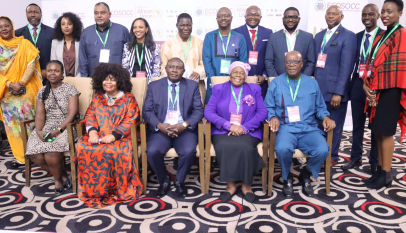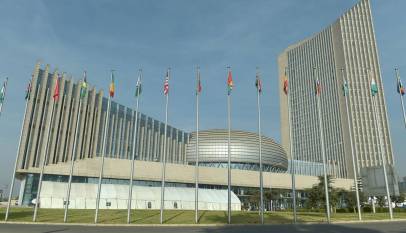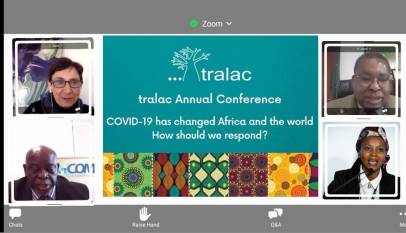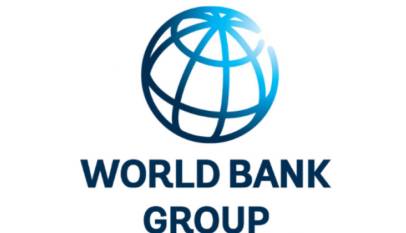OP-ED | A mightier, united Africa will emerge from the coronavirus downturn, By Hippolyte Fofack
There are reasons to be optimistic about Africa’s post-coronavirus growth prospects says Afreximbank’s chief economist
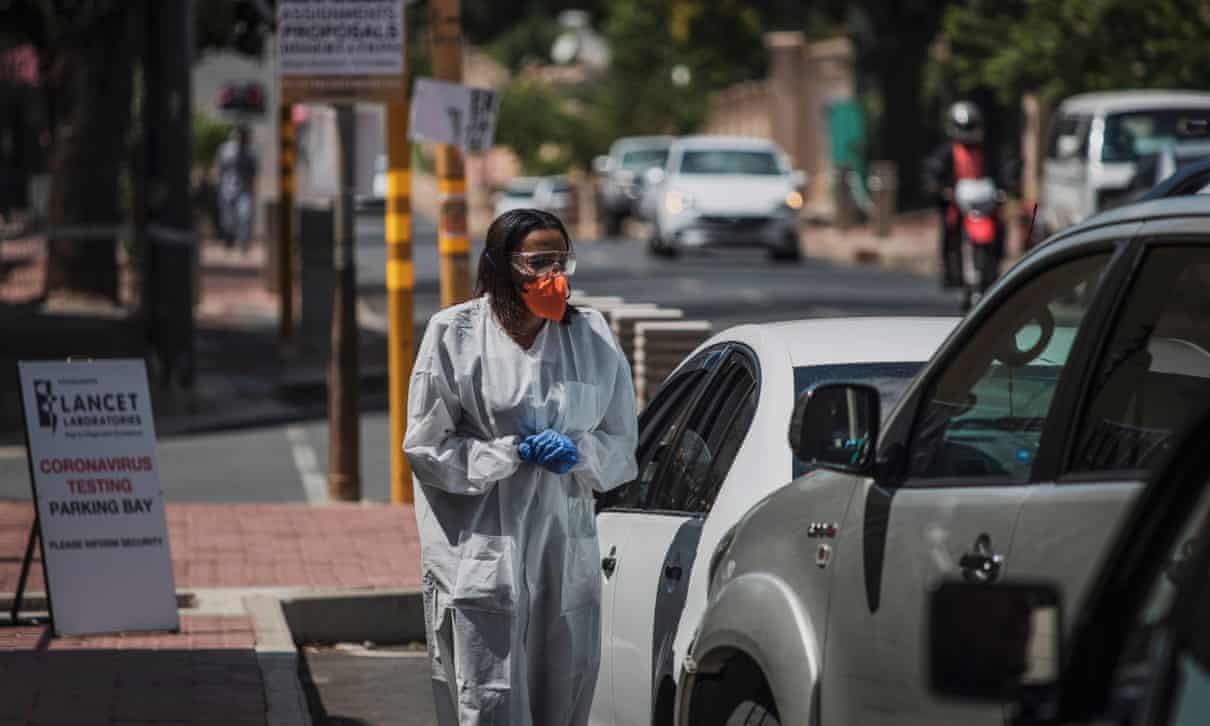
So much has changed since the coronavirus pandemic struck, a “black swan” event that has enfeebled the global economy and set it on a path resembling the 1930s Great Depression. Commodity prices have collapsed, while global trade fell by 3% in Q1 – and will decline by a record 27% in Q2, according to forecasts from the United Nations Conference on Trade and Development (UNCTAD). In the US, unemployment has skyrocketed, and food banks have resurfaced in major cities to help families contend with the twin health and economic crises.
The International Monetary Fund is forecasting a massive recession in the US, alongside a synchronised global downturn. Though the magnitude of the contraction is expected to be less pronounced in Africa, the region is nonetheless set for its first economic recession in more than 25 years. African output, which remained resilient during the 2007-08 financial crisis, faces a major test during the global virus downturn.
This time, the synchronised global contraction reflects the adoption of aversion behaviour – a self-preservation instinct against the highly lethal virus – and the globalisation of institutionalised measures (lockdowns, quarantines and social distancing) adopted by various governments to slow the spread of the virus and help healthcare systems cope with the surge in demand for their services.
Effective reproduction rates – the average number of people who will contract the virus from a single infected person – are down and infection rates are reaching peak levels. This has enabled the easing of confinement measures, perhaps implying that the virus could fade away in the second half of the year.
Nevertheless, the global demand and supply shocks caused by these measures have already wrought havoc on the world economy, which is set to lose almost $8.5 trillion in output over the next two years, according to a UN report. Most sectors of the economy have suffered, with production being brought to a standstill in several industries. Supply chain disruption has impeded global trade, while household incomes have been impacted by reduced production, which is driving up prices on the supply side.
Global demand and supply shocks are also impacting Africa through other channels. These include tightening financial conditions, increased risk premiums, capital flows reversals and commodity market stress, all of which exacerbate liquidity challenges and encumber balances of payments. UNCTAD’s free-market commodity price index, which measures the price movements of primary commodities exported by developing economies, lost 20% of its value in March. Furthermore, with unemployment rising in Europe and North America, remittance inflows could plummet. The World Bank estimates that remittance flows to low- and middle-income countries could drop by more than 20% this year.
Synchronised and speedy recovery
Amid these challenges, there are reasons to be optimistic about Africa’s growth prospects. Global coordination of economic policy has improved and the policy responses by countries and multilateral development banks have been exceptionally strong. This could help create conditions for a global recovery just as synchronised and speedy as the outbreak of the virus downturn.
In this context, the near-term outlook points to the increased resilience of African economies, with output expanding above trend growth rates in 2021. This will be supported by a synchronised global recovery and robust economic expansion in Africa’s leading trading partners: the European Union, China, India and the US, which account for more than 60% of total African trade.
Instead of falling into financial black holes – as happened in the 2007-08 crisis – countries’ enormous fiscal and monetary stimulus programmes are helping avoid avoidable bankruptcies, curtailing insolvencies, and will boost global demand and trade and lift commodity prices in the post-containment phase. Concurrently, the timely support of multilateral development banks is helping the worst affected nations adjust to the virus-induced macroeconomic fallout. Through their countercyclical liquidity support, these institutions are helping countries deal with acute pressures on liquidity that are giving rise to twin deficits. Health and social expenditures are escalating exactly as fiscal revenues and export earnings shrink.
Recovery will also rely on Africa’s commitment to macroeconomic stability, which has grown into a pillar of economic policy across the continent. For the first time, decreasing inflationary pressures and expectations have enabled central banks to extend monetary stimulus and other policy responses to support small and medium-sized enterprises, helping them avert payment defaults.
Beyond supporting economic recovery, this shift from a single monetary policy objective (inflation targeting) towards the dual objectives of price stability and growth represents a profound change in the policymaking landscape of a region where financial repression has hitherto inhibited long-run growth and structural transformation. It also denotes the deepening integration of Africa into the world economy and ongoing global macroeconomic convergence.
Power of patient capital
Another key driver of African countries’ improved resilience is the intensifying process of intraregional economic integration. Though intra-African trade remains relatively low overall, it has grown steadily over the last decade and increasingly serves as an effective absorber of adverse global shocks.
That growth is set to magnify in the coming years, increasing by half within a decade of the implementation of the African Continental Free Trade Agreement (AfCFTA). Indeed, it could double if trade facilitation, rather than just tariff liberalisation, is undertaken during the implementation of the continental trade integration reforms.
Trading under AfCFTA will commence next year, but the benefits of a fully integrated market – set to grow to 1.7bn people by 2030, with a combined consumer and business spending power of $6.7 trillion – are already significant. Expanding growth opportunities and returns on investment are sustaining investment flows and shifting their composition away from natural resources towards labour-intensive manufacturing industries as corporations capitalise on increasing efficiency and economies of scale.
As the defragmentation of African economies enables companies to spread the risk of investing in smaller markets across the region, the power of patient capital as a driver of growth will amplify. The pandemic, which has provided yet another opportunity to test the resilience of African economies, is emerging as an opportunity to accelerate the pace of injection of patient capital triggered by the AfCFTA to sustain the diversification of growth sources and enhance intra-African trade.
As the severity of the coronavirus crisis became apparent, advanced economies drew on their financial wherewithal to outbid other nations in the global supply chains of Covid-19 products (including personal protective equipment, diagnostic and testing kits and ventilators), making it difficult for African countries to obtain them in their hour of need.
In this regard, the pandemic has exposed the flaws of the development model that for decades has connected Africa to the global economy exclusively as an importer of manufactured goods and exporter of raw materials and unprocessed natural resources.
The coronavirus crisis should incite Africa to inaugurate a homegrown pharmaceutical and medical equipment industry to strengthen health and national security and better prepare the region for future health crises. This would help close the huge and still-growing hole in the continent’s balance of payments and boost intra-African trade, further enhancing the region’s economic resilience as it sets out on a long-run growth trajectory.
Hippolyte Fofack is chief economist at the African Export-Import Bank. This opinion article was originally published on African Business; the views expressed in it are the author’s and do not necessarily reflect African Newspage’s editorial policy




